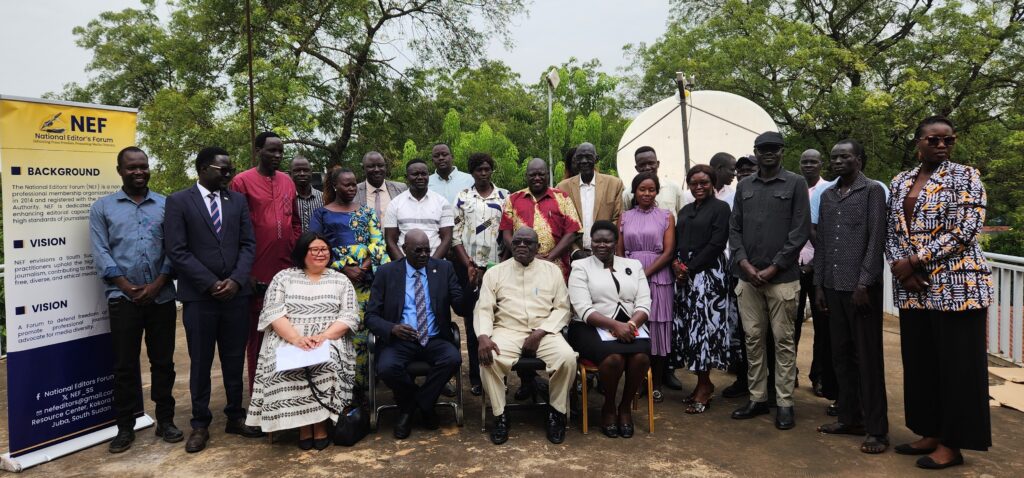South Sudan’s Information Minister Michael Makuei Lueth called on news editors on Thursday to prioritize accuracy in reporting as the country prepares for 2026 general elections.
Speaking at a two-day training workshop for the National Editors’ Forum in Juba, Makuei emphasized the need for precise language and responsible journalism.
“Editors must ensure headlines reflect the content of the story, not just attract readers for the sake of sales,” he said. “Choosing sensational titles that mislead the public is a breach of journalistic integrity.”
Makuei, who is also the government spokesperson, warned journalists against legal violations, saying media professionals who break the law outside their work would not be protected.
“If you act outside journalistic ethics and conflict with the law, you will be held accountable as an individual,” he said.
Spana Abuyi, Director General for Media Compliance at South Sudan’s Media Authority, urged editors to rigorously verify information before publication.
“Editors are the final checkpoint,” Abuyi said. “Every story must be fact-checked, ethically sound, and free of grammatical errors to maintain public trust.”
Oyet Patrick Charles, President of the Union of Journalists of South Sudan (UJOSS), encouraged stronger peer networks to improve professionalism.
“Mistakes happen, but through collaboration, we can elevate media standards,” he said. “This is not about competition, it’s about ensuring credible journalism for the people of South Sudan.”
Chuol Jany, Interim Chairperson of the National Editors Forum, said the workshop aimed to train editors on content standards, artificial intelligence use, and combating plagiarism.
“We’re working to ensure journalists credit their sources properly, whether from websites, Facebook, or other platforms,” Jany said.
The training, attended by senior editors, focused on fact-based reporting and ethical editing aligned with global standards.
Funded by UNESCO in partnership with UJOSS, the National Editors Forum, and the Association for Media Development in South Sudan, the workshop concludes on Friday with the election of a new NEF leadership team.
South Sudan’s media landscape faces challenges including restricted information access, security threats, censorship, and financial constraints. Disinformation remains a major concern, complicating efforts by independent outlets to inform the public and hold leaders accountable.




